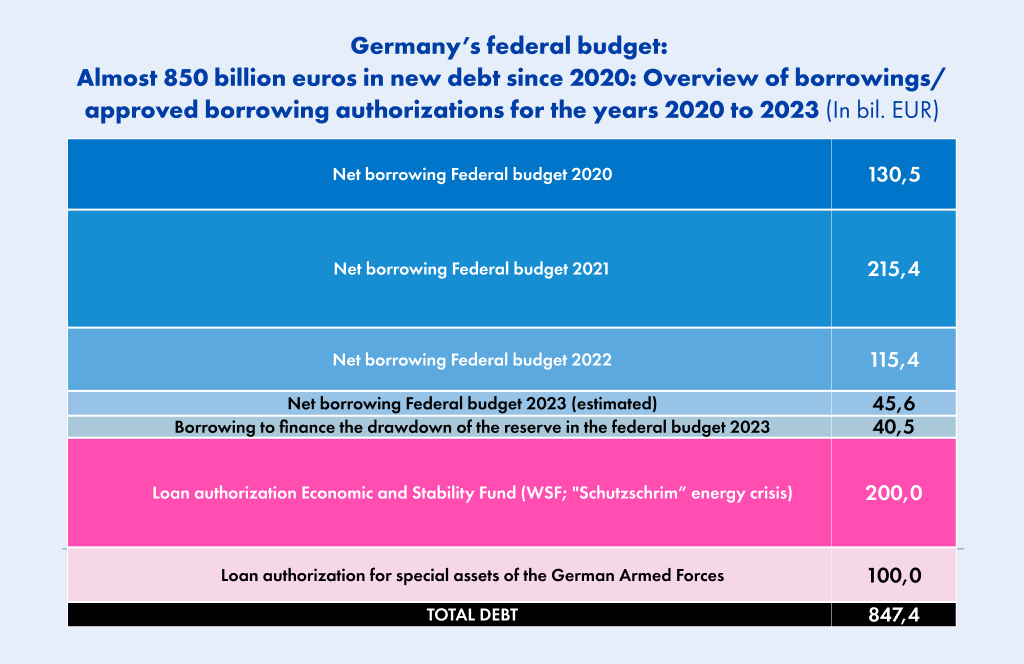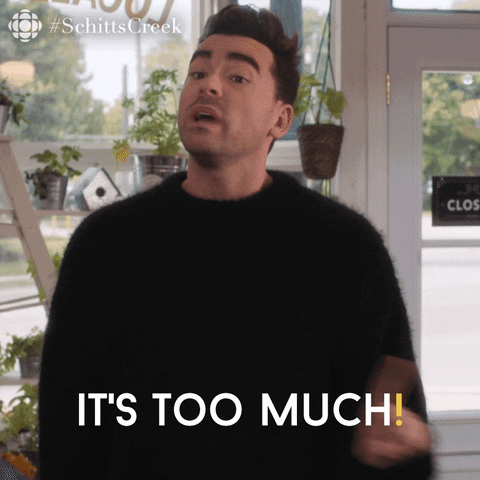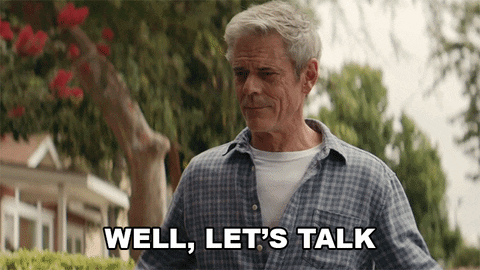Issue #142
Guten Morgen! Before you dive into the Halloween Sugar Rush, get ready to savor some bitter, sour Warheads. Welcome to this week’s Krautshell, where we serve up a mix of intriguing facts and tidbits for your enjoyment. In our main article, we have insights into how Germany and France try to improve their relationship in Wet Fishy Squishy style, along with the outcomes of the 2023 state elections in Bavaria and Hesse and how Elon flips the bird to the EU digital laws. Lastly, Anna’s scoop on increasing migration in Germany, which is tilting the scales to the right, Happy reading, and we wish you a great start to the week. Anna Szilvia WHAT TO WATCH THIS WEEK: Couples Therapy, Northern German Style France and Germany have always been the engine of the EU and when these two countries pull together, ambitious projects can be implemented. Unfortunately, this engine has been stuttering lately. One reason for this is that the charismatic President Macron and the reserved northern German Chancellor Scholz haven’t clicked yet. On top of that, there are political differences, for example over the use of nuclear power or major armament policy issues such as a new fighter plane or tank that they want to build together. So, how do you best resolve such a situation? Well, through couples therapy, of course! And what city could be more suitable for that than Scholz’s old hometown, Hamburg? Admittedly, Hamburg can be a bit chilly and tends to rain a lot, but if you’re serious about the relationship, you have to tough it out. In addition to formal activities like a visit to the German-French Airbus factory, a two-day meeting (!) of both cabinets, and discussions on topics like climate protection, joint defense projects, and the future of Europe, the two leaders also allowed a sneak peek into the informal cozying up through a harbor tour and a walk through the beautiful quarter Blankenese. Despite the classic Hamburg “Schietwedder” (bad weather), the crowning glory was undoubtedly Hamburg’s culinary delight, the “Fischbrötchen” (fish sandwich). If this can’t save your relationship, what can?! We wish you bon appétit! INSIGHTS FROM PARLIAMENT: Federal Elections in Bavaria and Hesse: Shifting Dynamics and the Rising AfD The 2023 state elections in Bavaria and Hesse have unveiled a landscape of shifting political dynamics, with implications that could ripple across Germany. The results offer a telling snapshot of the German electorate’s sentiments and preferences, and they provide intriguing insights into the strength of the traffic light coalition and the prominence of the far-right Alternative for Germany (AfD). Beaming faces for some, tears for others: The elections in Hesse and Bavaria were carrots and sticks. The CDU, the AfD, and the Free Voters celebrated successes. The SPD and FDP took the stick from the voters. In Bavaria, the Christian Social Union (CSU) maintained a stronghold with a resolute 37% of the vote. However, it wasn’t all smooth sailing for the CSU, as this marked a slight drop in their support. The Free Voters came in second, followed by the AfD, Greens, and SPD. The FDP and the Left Party did not make it into the state parliament. In Hesse, Prime Minister Boris Rhein’s CDU has won the state election by a clear margin. The Christian Democrats won with 34.6% of the vote. The AfD gained more than five points to take second place with 18.4%, before the SPD and Greens. With exactly 5 percentage points, the FDP narrowly won re-entry into the Hessian state parliament. The recent elections in Bavaria and Hesse served as a clear indictment of the current governing parties in Berlin. The SPD performed poorly, with the worst results ever in Hesse, and the FDP faced another defeat, adding to their list of losses in various states: Lower Saxony, Schleswig-Holstein, North Rhine-Westphalia, Berlin, and Bremen. The Greens, who had previously seen success, also saw significant setbacks. The standout success was the AfD, as they managed to secure a substantial share of the vote and expand their influence beyond their traditional strongholds in eastern Germany. This suggests that the AfD successfully tapped into voter dissatisfaction with the ruling coalition. The upcoming European elections in June 2024, and the three state elections in eastern Germany next year in Thuringia, Saxony, and Brandenburg will provide further insight into the evolving political landscape. Particularly if the AfD’s current polling strength continues, this new landscape will necessitate more engagement, clarity, and solutions from the democratic parties than ever before. THE BIG PICTURE: Ultimatum to Confront Misinformation Since last weekend, the world has been shocked with a surge in tensions, terror, and tragic events in Israel and its neighboring territories. As the crisis unfolds, the dissemination of accurate information becomes increasingly crucial. Since the attack on Israel, social media firms have seen a surge in misinformation about the conflict, including altered images and modified videos. In reaction, EU-Commissioner Thierry Breton had warned X, formerly Twitter, and Meta about such content and urged social media platforms to proactively remove disinformation and content that is illegal under EU law, referring to the Digital Services Act (DSA). In line with this regulation, Breton demanded “timely, diligent, and objective action”. Following this interaction, the platforms highlighted that they quickly established a special operations center with experts to closely monitor and respond to this rapidly evolving situation. The legal requirements for platforms to effectively mitigate the risks to public security and public debate from disinformation are also at the center of discussion in Germany. Considering the recent developments in terms of DSA legal compliance, the German Federal Anti-Discrimination Agency has also expressed considerable criticism and emphasized the inadequate application of the applicable law. Moreover, the agency called on all ministries and other public bodies to ask themselves whether it is still sustainable to remain on the platform. Source: bundesrechnungshof.de Here are three appointments for next week that you should have on your radar: THE “DEUTSCHLAND”-PAKT To find a solution for the increasing migration is becoming more and more urgent in Germany, not only because the citizens’ concerns give rise to right-wing and anti-democratic parties, but as well because on the municipal level the cities and counties are increasingly overstrained with the integration of the immigrants. Apart from the discussions going on at EU level, Germany needs its own solution for what many have dubbed a crisis. It’s not easy though – the government parties differ in their philosophies on how immigration and integration need to be handled, so until today there hasn’t been a lot of movement towards a solution. A few weeks ago, Chancellor Scholz in a parliamentary speech invited the opposition to work together on a “Deutschland-Pakt”, a national effort to bring the country forward, in many areas, industry and society alike. Opposition leader Friedrich Merz accepted but tied that cooperation to the migration question. After a bit back and forth, the Chancellor invited Friedrich Merz to a chat which took place yesterday. They were joined by the Prime Minister of Hesse, Boris Rhein (CDU), and the Prime Minister or Lower Saxony, Stephan Weil (SPD). We will report back on the contents of this conversation, and the migration efforts next week. Today let me just point out one thing: Meeting to work on a “Deutschland-Pakt”, while only including two parties, thus omitting the Greens and the Liberals as governing parties, AND the CSU, is destined for failure. Not only another coalition conflict seems to be in the making. We can as well expect a left-out party CSU leader and Bavarian Prime Minister Markus Söder to subtly sabotage any outcome, if there was any. This being so obvious, I cannot help but think that the guest selection was created with purpose: To avoid an actual cooperation, while still being able to say: We tried. Unfortunately, in this case good intentions without results, and playing the blame-game, won’t be appreciated. It this indeed was the strategy, it might very much backfire. Issue #142


FIRST, AN OUTLOOK FROM SZILVIA:
NOW, SOME SOLID INTEL:
TAKE A BREAK, GIVE YOUR EYES A REST:

LONG STORY SHORT:
OUTLOOK:
When?
What?
October 17th, 2023
EU energy ministers meet to discuss electricity market design
October 18th & 19th, 2023
German Council on Foreign Relations European Think Tank Conference 2023
October 19th & 20th, 2023
Informal meeting of EU trade ministers
WHAT’S ON OUR MINDS:




